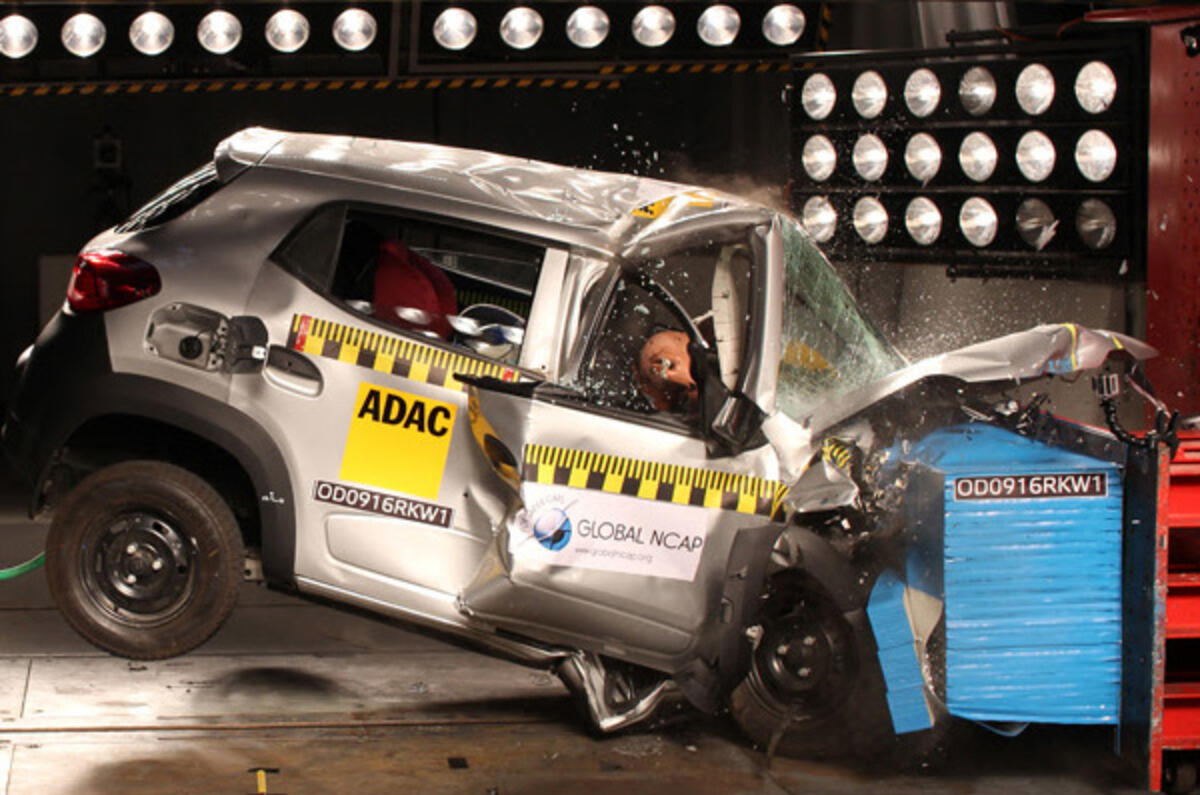Models from Renault, Hyundai, Mahindra and Suzuki subsidiary Maruti Suzuki have received zero star ratings in Indian NCAP tests, due to a dearth of standard safety features and structural integrity.
Popular models in India such as the Renault Kwid, Maruti Suzuki Celerio, Maruti Suzuki Eeco, Mahindra Scorpio and Hyundai Eon all received zero stars for adult occupant protection in standard specification, demonstrating how unsafe these models can be in the event of an accident.
Only the Renault Kwid received a star rating when an optional airbag was added, but at just one star it falls well short of the mark set in other regions.
More than 135,000 people are killed in road accidents every year in India.
David Ward, secretary general of Global NCAP voiced his concerns over the latest results, highlighting the involvement of some of the world’s leading car makers.
"The latest results show how important it is for cars to have a body shell that can remain stable in a crash. This is an absolutely crucial prerequisite for occupant safety together with fitment at least of front airbags.
“It is very surprising that a manufacturer like Renault introduced the Kwid initially lacking this essential feature.”
World NCAP to eradicate zero-star cars by 2020
Car makers have argued that in order for them to sell vehicles to markets such as India with low starting prices, safety equipment has to be kept optional. The Renault Kwid, for example, costs from around £3000, which is close to half the price of the UK’s cheapest new car, the Dacia Sandero. But Global NCAP argues that all cars should meet a minimum requirement, and has urged the Indian government to enforce tougher minimum standards.
“[We] strongly believe that no manufacturer anywhere in the world should be developing new models that are so clearly sub-standard,” added Ward. “Car makers must ensure that their new models pass the UN's minimum crash test regulations, and support use of an airbag.”
Most of the manufacturers involved in this latest announcement produce models in other markets with far higher safety ratings. One of Renault’s smallest European models, the Twingo, has a four star rating, and Suzuki’s European-version of the Celerio has three.
GM accused of wilful manslaughter with unsafe cars
Ward highlighted the difference in rating between the markets, again focusing on Renault: "We welcome Renault's efforts to correct this and we look forward to testing another improved version with airbags. Renault has a strong record of achievement in safety in Europe and it should offer the same commitment to its customers in India."






Join the debate
Add your comment
It's the lack of passive safety that shocks me
Renault Kwid is clearly with a weak crash structure...
---Mind, this is about same weight as 1983 Daihatsu Charade.
This Kwid is a new model, and hence Nissan/Renault have no excuse.
Comparing Apples and Oranges